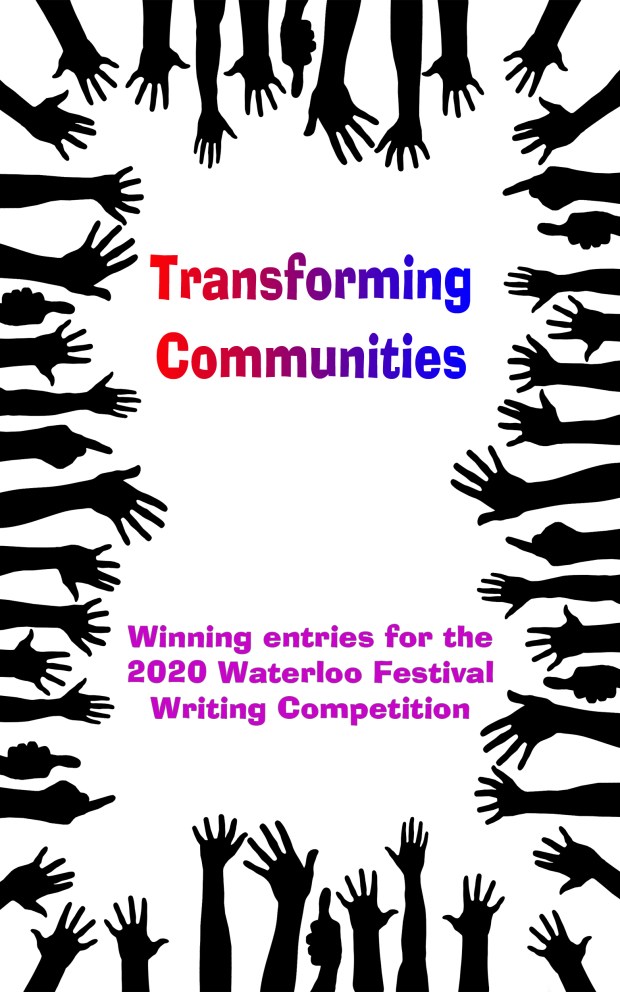Image Credit: Pixabay/Pexels unless stated otherwise.
Facebook – General
Well, okay, I grant you, the weather HAS cooled down a lot since my last post but it has been a bit of an odd day here. Squally rain and blustery winds. What season are we in again?! It is June! Having said that, I am grateful for the temperature drop, as is Lady.
If you ask a writer to name their favourite book or story, they’ll usually reel you off a considerable list. (I am also guilty of this).
Ask us to name a book or story we don’t like and we might come up with a few but there won’t be so many. Part of that will be due to the stories in question being forgettable for us. We move on to what we hope will prove to be a more enjoyable read next time (and we do move on. Life is too short to do otherwise).
We want to remember good stories. We want our stories to be good stories people don’t forget.
Yet at the same time any negative reviews for our books and stories stick stubbornly in our heads like glue and those are the ones we SHOULD forget!
Funny old weather again today, though at least Lady and I didn’t get hot on our walk. Good to catch up with family in NZ on Zoom this morning (UK time). Then Zoom church which was lovely.
Also good to meet up with family yesterday for natter and nosh in the great outdoors. Lady had a wonderful time “hoovering” up. For someone who loathes the vacuum, she does do an excellent hoover impersonation. 😀😀
Writing wise, I’ll have a story up on Cafelit again soon and look forward to sharing the link to that in due course. I look at interviews in my spot on the Association of Christian Writers’ More Than Writers blog this month. Hope to share link on that tomorrow. I’m going to be setting some puzzles in my CFT post later this week too.
Drafting more flash fiction and am pleased with how the edit on my short story (1500 worder) worked out. Hope to give that story another read through and final polish before submitting later this week.
Have a good writing/reading/both week!😊
Facebook – General –
and Association of Christian Writers –
More Than Writers – Interviews
It’s always a pleasure to write my monthly post for More than Writers, the Association of Christian Writers’ blog. This time I talk about interviews.
I look at what I enjoy about them and how you can use them to outline your characters.
I also discuss using open questions for my Chandler’s Ford Today interviews and share some advice for those not yet published or who are just beginning their writing journey. Interviews are useful to think about NOW.
Hope you enjoy.
No chance of Lady and I being too hot today – rain for most of the day! Still, the park will look a lot nicer for it tomorrow. And my roses are blooming lovely. A friend gave me the ones I have at the front as the variety is called Allison. They smell nice too (and I do usually as well! 😀😀😆😆!).
Have got a few things coming up on Chandler’s Ford Today which I look forward to sharing when I can. Will be brimming with useful information. That’s about all I can say for now.
Plans for the week including prepping the above things for CFT, giving an edited short story the final read through and then submitting it for a competition, and continuing to work on my longer term projects.
Also plan to write more flash of course. The nice thing with that is when I’m really pushed for time and I know I’ve only got 10 minutes, that’s when I jot down a very rough draft of a flash tale, knowing I can finalise it later. Those 10 minute slots add up over the course of the week and you can get a fair bit done in them. So if you only have little slots of time, use them!
Facebook – From Light to Dark and Back Again
What do I want my flash stories to do?
Chiefly to entertain of course. Books and stories are wonderful forms of escapism.
While I have nothing against “real life” writing, far from it, I do want stories to amuse, entertain, and/or inform me, but not depress me about the state of the world. I can get that from watching the news.
I do want to be able to identify with the character, whether or not I agree with what they’re doing and/or their attitudes. I want them to be able to make me react, whether it is to inspire pity, make me laugh, or what have you.
The difference with flash is all of that has to be done in a compressed word count but it does make you focus on what matters to your character. You should have no doubt that this story has to be told “by” this character and that what they have to reveal is vital to your readers.
Sometimes that vital element is to make your readers laugh! Both P.G. Wodehouse and Terry Pratchett did rather well out of that though neither were up for the Booker or anything like that. I am all for the laughter makers, always have been, always will be.
In between the laughter, that is when I will look for a story to move me in a different way so I come back to the lighter hearted forms of fiction, ready to enjoy that all over again.
But a story that doesn’t make me react in any form is not something I’m going to read again. Indeed it is highly likely I won’t get beyond the first paragraph.
And that serves as a useful pointer for me with my writing. What impact do I want my story to have on others? It is a good thought to keep in mind.
I’ve just listened to the wonderful Pachelbel’s Canon in D on Classic FM and it made me think of repetition as its theme is repeated throughout.
Repetition can be a useful device in a story though for flash it has to be used sparingly. I don’t use it often because I want to use my restricted word counts in better ways but sometimes it IS the thing to do when the type of story or character needs/would come out with the kind of emphasis repetition gives you.
For this kind of story, I tend to repeat an odd word in close succession to build a “beat”. I used this technique in my story Why Stop Now by repeating the word “here” in the opening sentence (and more than once too!).
I did it for emphasis and it also shows something of the character who is doing the repeating. (Clue: this is one of my tales where it even gave me the creeps so I hope it does the same for you if you read it – it is meant to!).
I think it is true for any writing device that you need to think carefully about why you want to use it and why it is the best thing for your particular tale/character. If you can tick the boxes on those two thoughts, go ahead. It will be the right thing to do.
I’ve been talking about interviews tonight as it was the topic of my ACW blog spot this month for More Than Writers. I’ve also interviewed my own characters from time to time.
I work out what it is I want to know and then ask a series of questions. Good questions to consider include the following but I’m sure you can think of loads. It really is up to you to work out what you need to know and frame the questions around that.
1. What do YOU think is your best quality? (You can use this one as a test as to whether your character is deceiving themselves or not).
2. What is your biggest weakness? (Again, you can use this to test how honest your character is).
3. What do YOU think others think of you? (You can also get an indicator of how much your character is likely to care about this depending on their response!).
4. What is your biggest fear? (Naturally as author you will make them face up to it too!).
Now for the shorter flash fiction stories, I tend to look at what my characters’ main traits are and how these are likely to land them right in it. (Such good fun that!). And for longer stories, you might want to ask more questions. But I have found, regardless of length of story, for that tale to work I’ve got to know my character inside out and questions like this help a lot with that.






I was watching one of the old Ealing comedies late last week (The Lavender Hill Mob starring Alec Guinness and Stanley Holloway). Great story, fab acting, and all packed into about 75 minutes or so. (Flash film, anyone?!).
My overall favourite Ealing comedy is The Ladykillers which, if you’ve not seen it, is dark with its comedy and worth checking out. Again stars Alec Guinness and a very young Peter Sellers. We probably wouldn’t think much of dark comedy being such a “thing” now but back when it came out, I think it may have been a different matter.
What these films have in common is a tightly controlled storyline. Not a thing is out of place. Not a thing could be taken out without the films losing something important. Good lessons for story writers there, regardless of what word count you work to!
Goodreads Author Blog – Book Habits That Annoy!
Aside from the obvious one of people turning down corners of books (which is even more irritating when they’ve borrowed the book from you!), what annoying book habits “get” you?
1. Feeling yourself about to nod off when you’ve been looking forward to reading all day and you’ve managed to read about two minutes’ worth of glorious prose. Yet you know if you make yourself keep reading, you will wake yourself up and then not be able to sleep properly when the time does come for lights out.
2. Not being to make up your mind about reading from your Kindle or paperback bookshelf and by the time you’ve decided, guess what? It’s lights out time again.
3. Looking for THE one book you’re longing to read, knowing you’ve got it somewhere, but can you find it when you want it to hand? Surprise, surprise – no!
4. Managing to pick up that hardback you’ve been looking forward to reading and end up dropping it on your foot. Some of these big beasties hurt when they land on your toes!
5. Having two books come out at about the same time by your favourite authors and not being able to decide which one to read first.
Of course, all of the above COULD just be me but I don’t think so!
Over to you then. Can you add to the list?
























































































































































































































































































